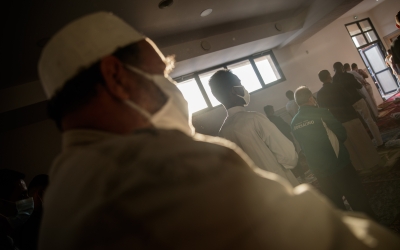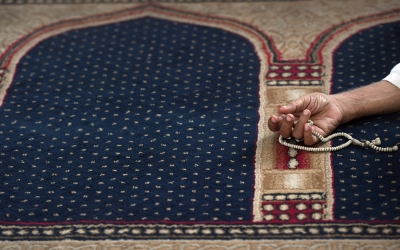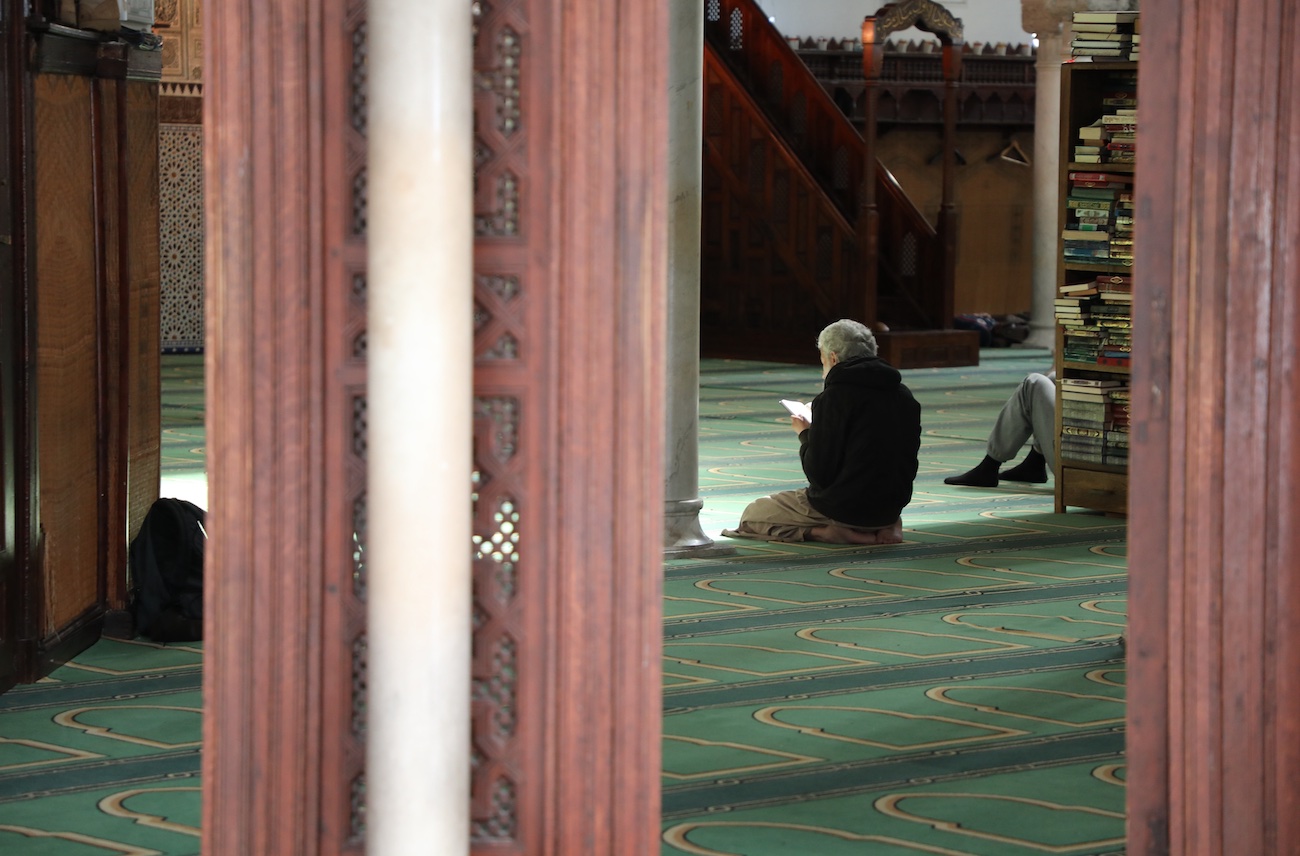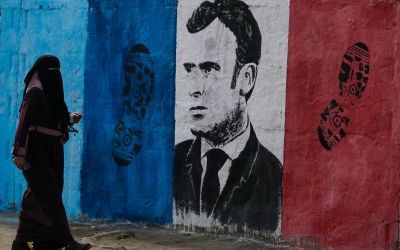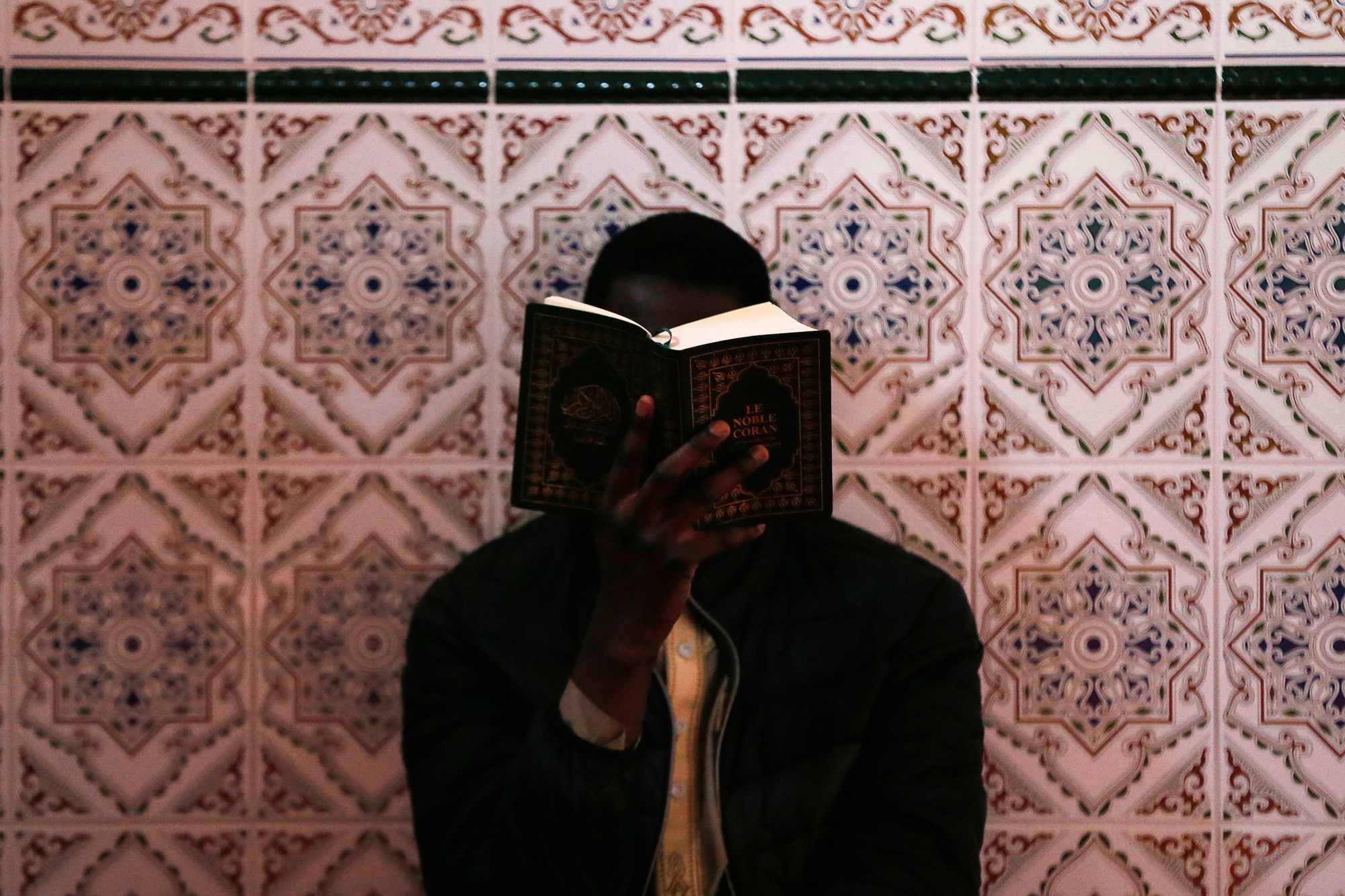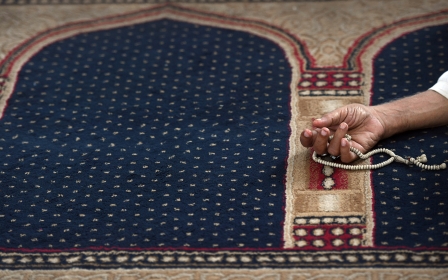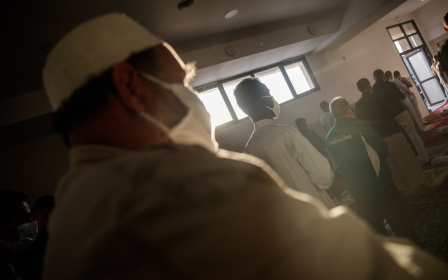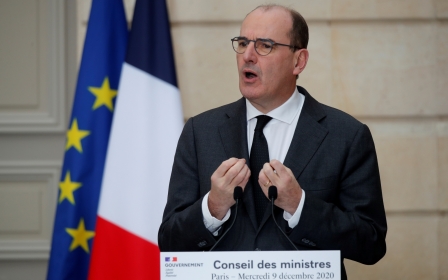Macron's 'imam charter' raises fears of state control over Islam of France
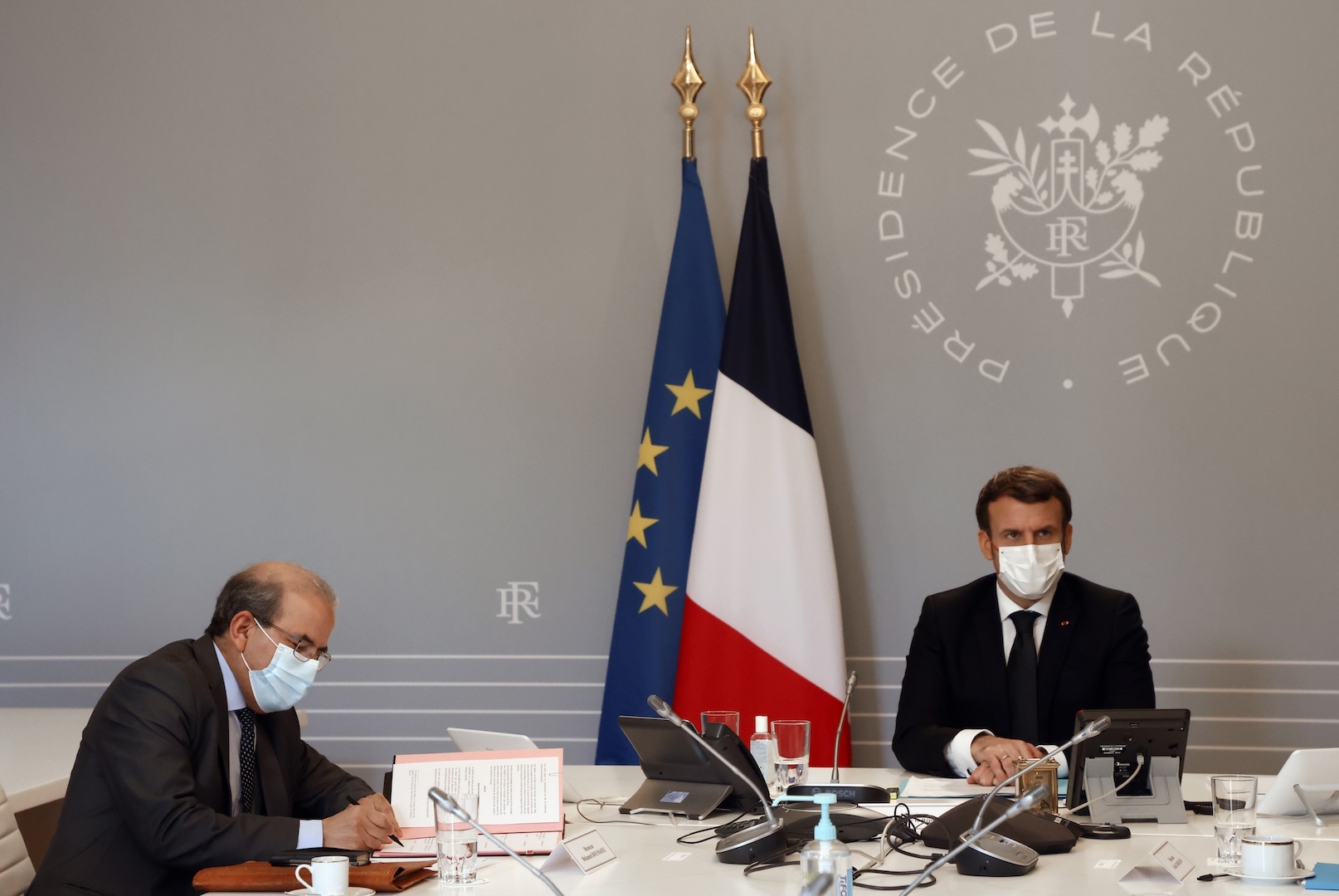
The French Council of Muslim Faith (CFCM) last week adopted the “Imam charter”, which sets out a framework for Muslim faith leaders to transform Islam in France into an “Islam of France”, at the behest of France’s President Emmanuel Macron.
Macron had tasked the CFCM, the de facto representative of Muslim faith federations to the French government, with drafting a charter of allegiance to republican values in October.
This charter should go hand in hand, according to the wishes of the president, with the creation of a National Council of Imams (CNI), responsible specifically for the training of imams and their certification as compliant with the charter - or not.
Renamed the Charter of Principles, the document’s ten articles set out the republican values to which all imams in France should subscribe.
“No religious conviction whatsoever can be invoked as an exemption from the duties of citizens,” states the text adopted on 18 January.
New MEE newsletter: Jerusalem Dispatch
Sign up to get the latest insights and analysis on Israel-Palestine, alongside Turkey Unpacked and other MEE newsletters
It explicitly affirms the equality of men and women, the compatibility of the Muslim faith with the French republic, with emphasis on “combating the instrumentalisation of Islam for political ends” and the “non-interference of foreign states” in Muslim worship in France.
According to snippets leaked in the press, Macron had warned: “Some will sign and some will not and from that we will draw consequences. Either you’re with the Republic or you’re not with the Republic.”
No such thing as ‘state racism’?
"T" is a French imam born and raised in France, who requested anonymity. Islam in France, as he sees it, is already here, with or without a charter. At the time of this interview, before the publication of the charter, he had decided not to sign it based on an initial draft leaked in the press.
The draft, which was published mid-December on news site Mediapart, stated that imams must acknowledge that there is no such thing as “state racism” in France, and not "use places of worship for political purposes”. Also reportedly considered for prohibition was use of the term “state-sanctioned Islamophobia”.
Article 9 of the charter attributes the attacks on French Muslims and the symbols of their faith to “an extremist minority that should not be confused with either the government or the French people”.
Therefore, the text declares, “denunciations of a so-called state racism amount to defamation and exacerbate both anti-Muslim hatred and hatred of France”.
This denial of the well-documented phenomenon of discrimination against Muslims incenses T.
“Who is the state to tell us what is and what isn’t racism? That’s freedom of belief,” he told Middle East Eye. “And what’s more, it’s a denial of a reality. The state or a part of the government is using words that are problematic.”
T points to comments made by various members of the current government, such as the claim by the Minister of Education Jean-Michel Blanquer that "Islamo-leftism" is “wreaking havoc” in universities, the words of the Minister Delegate in charge of Citizenship Marlene Schiappa on virginity certificates, or those of the Interior Minister Gerald Darmanin, who claimed to be "shocked" by halal food sections in supermarkets.
‘Who is the state to tell us what is and what isn’t racism?’
- 'T', French imam
“This is clear-cut state involvement,” the imam continues. “Why aren’t they concerned with other religions?
“The state has not only a duty to guarantee freedom of religion, but also a duty to refrain from interfering in religion,” he said, in reference to the 1905 law on the separation of church and state, or laicite, which guarantees freedom from state interference in matters of religion.
“If religious figures are inciting hatred, then this can be pursued under existing laws, such as the 1972 Pleven law. So, the government has to admit it has a problem with Islam,” said T, adding that linking religion with acts of separatism or terrorism, as Macron did in a speech on 2 October, “is also problematic”.
For the imam, “the government has no strategy to combat these actions and doesn’t seek to react, except by interfering where it has no business to do so”.
In any event, T viewed the charter as born more out of political objectives than a desire for harmony.
“We are a few months away from the May 2022 presidential elections, and issues around the far right are still highly topical,” he said. “I think this charter is nothing but hot air. It will give the impression that something is being done.”
The 'Islam of France' is already here
“Islam of France” is something T said he observes on a daily basis. He refused to specify where the worshippers at his mosque come from. “They are French and Muslim,” he said.
According to him, the French government treats Muslims as if they were bad people.
“They see Arabs. Not French men and women, born in France, brought up in France, with French husbands and wives. But a Muslim in France is still French. Why stigmatise them? The government’s attitude is stuck in colonial times,” he said.
T claimed he has observed the frustrations of worshippers in the face of constant public debates surrounding Islam.
He does not, however, dispute the need to create a charter and give imams a training suited to the French context because, he said, “there is text and there is context: French Islam is not the same as the Islam of Saudi Arabia, Algeria or Senegal”.
Macron has called several times for the creation of an Islam of “the Enlightenment” while stopping short of clarifying what that might constitute.
This appears to be rooted in a desire to designate the French government as the body that sets out the framework of Islam in France, comparable to restructuring Catholicism by removing all papal influence. But that begs the question of why Paris is reframing the “Islam of France” - and for whom.
The heated debates on the compatibility - or otherwise - of Islam with the values of the republic aside, observers note the existence of a largely peaceful practice woven into the social fabric of France at a local level.
As far as the day-to-day is concerned, T does not have any particular worries. “Everything is fine at a local level. Particularly with the mayors. The problem is with the media and the ministers.”
Political scientist Raberh Achi, whose writings focus on the relationship between the government and Islam from a socio-historic perspective, agrees with T and believes that worshippers “handle things pretty well at a local level”.
“The most important level is the regional level. At the regional and national levels, it all becomes more complex. Quite simply because the issues are primarily local. There is pushback, perhaps even distrust, towards everything emanating from national authorities, particularly where it concerns the government,” Achi explained to MEE.
Local issues are a far cry from the issues at a national level because a town’s initial priorities are for pragmatism and “solutions in line with the laws on state neutrality”, he added.
Achi also points to a “misalignment between the way all this is being approached at national level, particularly by the media, and the offline strategy at a local level driven by very specific concerns. For example, people want a place of worship, how can we do this in respect of the law?”
It remains to be seen how far the top-down, centralist desires of the French state have the paradoxical potential to stifle or overturn these local initiatives, which show a French Islam emerging quietly and organically.
Poor representation of everyday Muslims
Another point is the unrepresentative make-up of the French Council of Muslim Faith and this body’s unique role as de facto spokesperson to the Interior Ministry.
According to T, “Muslims were not consulted. Some weren’t even aware of the existence of the CFCM.”
In fact, the set-up of the CFCM means whole swathes of French Islam will not be represented, let alone consulted. Founded in 2003 by then-Interior Minister Nicolas Sarkozy, it was designed, in theory, to serve Muslims in France at a state level on matters concerning religious worship.
“Participation in a regional French Council of Muslim Faith (the local CFCM forums) depends entirely on the size in square metres of the mosque. Even when we want to take part, to voice our opinion, our candidacies are not accepted,” T said.
“The CFCM represents itself alone. Its sole purpose is to be the spokesperson to the government. The Great Mosque of Paris, which holds the presidency of the CFCM, is only listened to by Muslims when it comes to deciding on the date of Ramadan or Eid.”
Haoues Seniguer, professor at Sciences Po Lyon, further elaborates this point.
“The CFCM has legal representation but does not represent the diverse Muslim communities in France,” he told MEE. “The government is seeking to organise a faith through intermediaries that are not necessarily recognised by or even known to French Muslims. This means there’s deregulation of French Islam on structural grounds.”
Originally conceived to unite the “Islam of France”, the charter initiative risks creating new fractures, between those who sign it and those who refuse - while furthering the divide between institutionalised Muslim faith and local cultural associations which find themselves feeling excluded.
“The stakeholders who represent Islam are part of the problem. National religious stakeholders have been set up in a way that can only heighten tensions,” Achi said.
“There’s a desire to be seen, to be validated by the public authorities and it’s the pitting of one against the other that enables this intrusive system to operate.”
Rekindling tensions
The issue of the charter has raised anew questions about the makeup of the CFCM itself. The body is composed of nine federations that highlight the influence of three main countries: Algeria, Morocco and Turkey.
This composition is at odds with Macron’s desire to move Islam in France away from foreign influences.
Furthermore, the process of the drafting of the charter has exposed tensions between the various parties involved.
At the end of December, the Great Mosque of Paris, led by its rector Chems-Eddine Hafiz, withdrew from the National Council of Imams initiative.
“Unfortunately the Islamist component within the CFCM, more specifically that linked to foreign regimes hostile to France, has insidiously blocked negotiations by almost systematically questioning certain important passages,” Hafiz wrote in a press release announcing his decision to withdraw.
No further clarification was given as to the precise nature of this “component” nor these “regimes”. But six of the nine member federations of the CFCM responded vigorously to these accusations by the Great Mosque rector, rejecting them and asserting their desire to continue working to create the National Council of Imams.
The charter introduced this month must be validated by all of the federations of the CFCM.
Two Turkish federations, the Coordination Committee of Turkish Muslims in France (CCMTF) and Milli Gorus (CIMG), as well as the rigorist movement Faith and Practice, have now refused to sign the text as they believe it risks "undermining" trust in Muslims.
According to a source close to the matter, the federations refusing to sign cite two principal points of concern: the description of “foreign interference” and the precise wording of the definition of political Islam.
‘Republican authoritarianism’
Paris wants a speedy process of regulations for a religion that has no clergy in the sacerdotal sense within its hierarchical structure.
According to Seniguer, this plan appeals to the government because it is rooted in the false assumption that “the reason there are extremist tendencies within Islam is because it doesn’t have a centralised authority that could nip such radicalism in the bud.”
But, the professor explained, “this is false, because the profile and background of those who perpetrate violence bears little relation to Muslims in France”. “Sometimes they have only recently arrived in France or they do not attend a place of worship,” he told MEE.
Seniguer also pointed out that Morocco having the king as the leader of the faithful in the country has not prevented the radicalisation of some Moroccan youth.
'That to me is intrusive secularism, or a desire by some politicians to regulate worshippers'
- Haoues Seniguer, professor at Sciences Po Lyon
Meanwhile, how will Muslims in France take to state-approved preachers and registered imams? Will worshippers have a say in the matter? Will these imams command the loyalty of the faithful? Will these authorisations have the paradoxical effect of alienating some worshippers from mosques? Many questions remain unanswered.
Other religions are already nervous. The National Council of Evangelicals of France has protested against this draft law - raising the question of whether the government using a public order might undermine the freedom of belief of its citizens?
For Seniguer, this is tantamount to "republican authoritarianism", allowing a republic dissatisfied with citizens who abide by the law to now meddle with their view of the world. “That to me is intrusive secularism, or a desire by some politicians to regulate worshippers,” he said.
Achi also expressed concern over this legislative movement driven by Macron, which seems at odds with the 1905 law on laicite.
He suggested that all the changes to this law have been “liberal” so far, but that the reform set out by the current administration “is anti-liberal and driven by a distrust of the Muslim faith”.
“It’s as if a door has been opened. My fear is that in the long term it can only lead to a tougher stance in the future,” he said.
- The article is an edited translation of a story originally published by Middle East Eye's French website.
Middle East Eye delivers independent and unrivalled coverage and analysis of the Middle East, North Africa and beyond. To learn more about republishing this content and the associated fees, please fill out this form. More about MEE can be found here.


